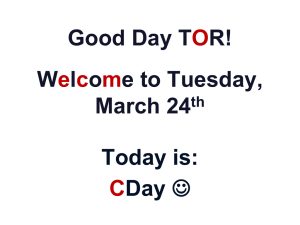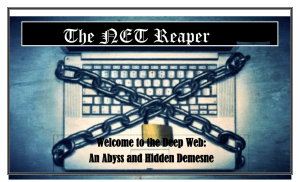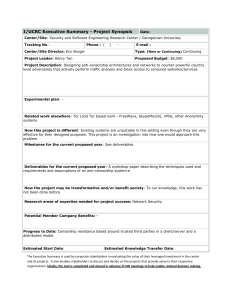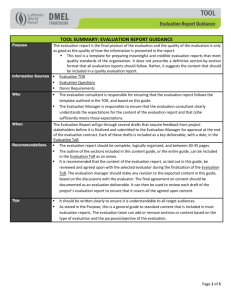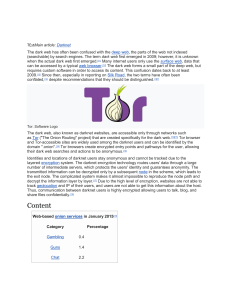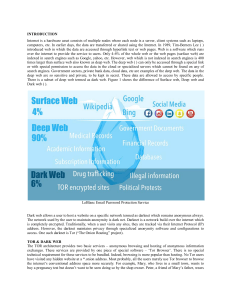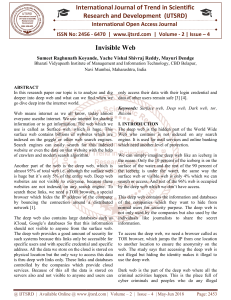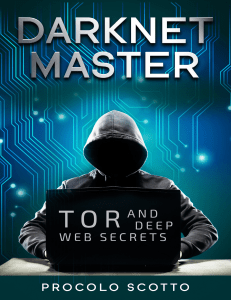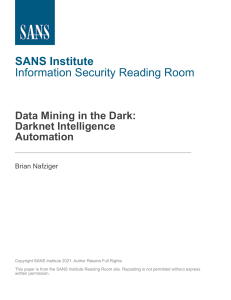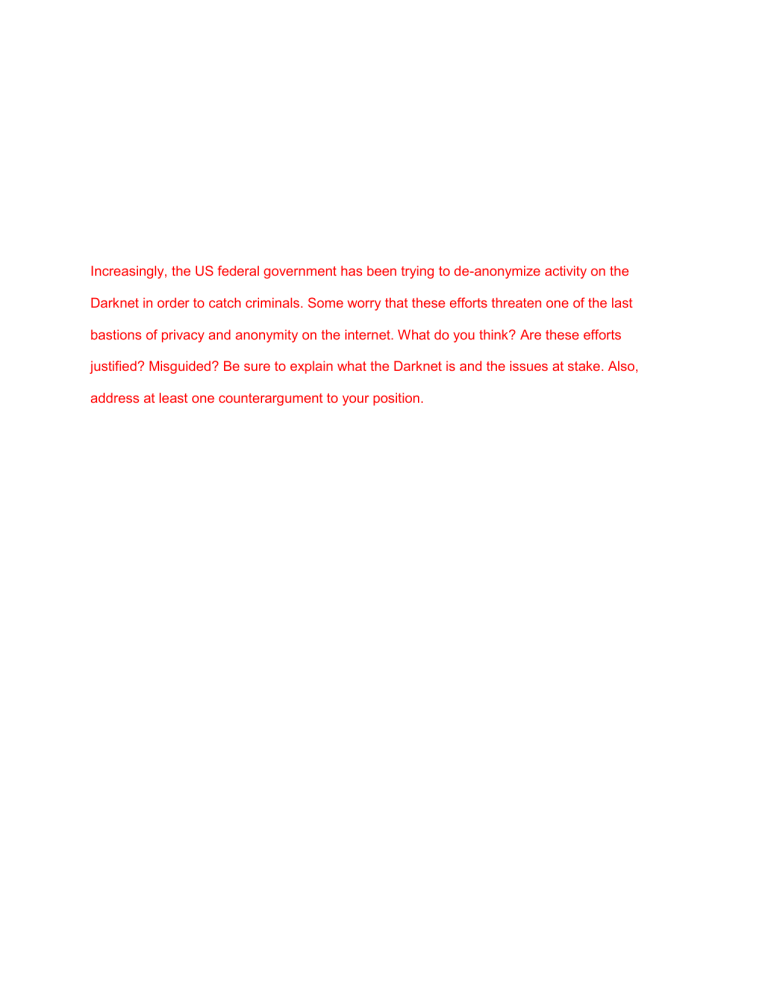
Increasingly, the US federal government has been trying to de-anonymize activity on the Darknet in order to catch criminals. Some worry that these efforts threaten one of the last bastions of privacy and anonymity on the internet. What do you think? Are these efforts justified? Misguided? Be sure to explain what the Darknet is and the issues at stake. Also, address at least one counterargument to your position. Felix A. Taveras Ethics and Information Technology (PHI 216-03) Professor Graham Curtiss-Rowlands Fall 2019 The Dark Net has to stop being a nest for criminals. The Darknet (sometimes called the Dark Web) works on the Tor browser, free software that masks your location and activity. Originally designed by the Naval Research Lab, Tor receives 60 percent of its backing from the State Department and the Department of Defense to act as a secure network for government agencies as well as dissidents fighting oppressive regimes. It is a privacy tool that has been used for both good and evil. The issue with the dark web is that, while is a safe haven for those that seek for protection because they are under an oppressive situation, it also gives criminals the platform for illegal activities. And that's when the predicament starts. How to control, detect and obtain information about illegal activities, and still, protect those who are oppressed and are looking to express themselves freely? The first users of the dark web were not criminals. One of them is Nima Fatemi, a black-clad 27-year-old Iranian who serves as a key Tor evangelist—helping people around the world use the Tor and the dark web to fight oppressive regimes. "We needed something different to connect to the Internet safely," he tells me. "I found Tor and thought, 'This is the tool.' It was peace of mind." But what do the authorities do about the many illegal activities taking place in sites like this? Take for example Ross Ulbricht, the creator of the infamous “Silk Road” in 2011. Ulbricht claims that “Silk Road was created as a site for people to have anonymity”. Silk Road was the biggest site one the dark net to buy drugs. Even though Ulbricht was arrested in 2013 by the FBI and sentence to life in prison, there are lots of emerging sites and people ready to take his place in the dark net. It is only fair for authorities to have access to this kind of matters, even if this means risking secrecy for people that actually need it. As things are right now, it is too risky to turn our backs to the things that happen in the dark web. Drugs are only one of the things and arguably the least of the problem. Also, privacy itself is compromised, since it is safer for hackers to sell private information over the dark web. Child pornography, weapons, dugs and theft is only some of the horrible things you can find in the dark net. There has to be something that allows some kind of authority to keep this from happening. The government has taken small steps to shut down the more disturbing parts of the dark web. In 2014, a globally orchestrated strike known as “Operation Onymous” took down hundreds of domains and led to the arrest of 17 people in several countries. (Among the sites caught in the operation’s web was Silk Road 2, a successor to the original drug market.) but this is not enough. Powerful agencies are still taking the Darknet seriously. According to an Edward Snowden leak in October 2013, the NSA, during a top-secret presentation in 2012, considered Tor a threat. "Tor stinks," reads the title of one NSA slide. "We will never be able to de-anonymize all Tor users [but] we can de-anonymize a very small fraction. “In another of Snowden's revelations, Britain's intelligence agency, the Government Communications Headquarters, dismissed the democratic potential of Tor as "pseudo-legitimate uses" that paled next to the "bad people" who ruled the Darknet. They should be able to be ahead. Of course, a drastic decision seems to not be fit. A weight on the balance in either direction would potentially affect innocent people. Times are evolving and with its evolution new agencies and rules need to take place. Unfortunately, is not that easy, change takes time and its sometimes painful. I think we have to put in place a new international agency, an agency who’s solemnly job is to catch people violating human rights and illegal activities. An agency that would punish the pedophilic but let activist do their thing. Take by example the INTERPOL, the INTERPOL provides investigative support, expertise, and training to law enforcement worldwide in battling three major areas of transnational crime: terrorism, cybercrime, and organized crime. Its broad mandate covers virtually every kind of crime, including crimes against humanity, child pornography, drug trafficking and production, political corruption, copyright infringement, and white-collar crime. We need a judge trusted enough, for it to be able to break into people’s privacy without violating it. The world is moving to an age where people’s lives are in the internet, maybe we should adapt to the idea of an internet police department.
